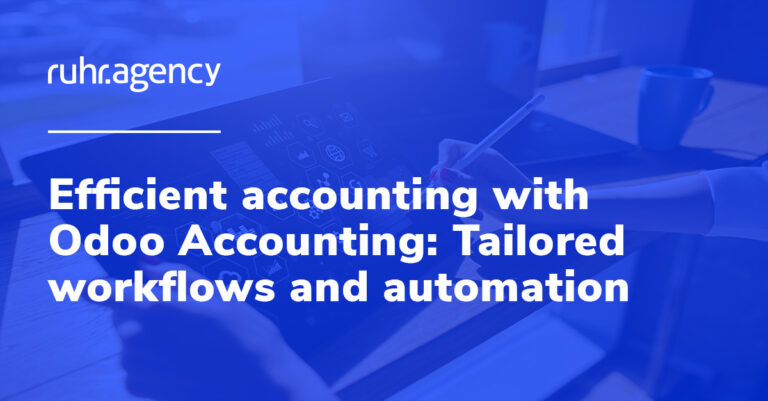Without products, no turnover and without production planning, no products. Production is the driving force of a company and a crucial factor for business success. This makes it all the more important for production planning and control to work smoothly. Usually, production planning and control is carried out using a PPS (production planning and control system). At best, this PPS is part of the ERP system so that seamless integration with other subsystems such as warehouse management or purchasing is possible. Odoo ERP also has a module for production planning: Odoo Manufacturing.
Odoo is an open source ERP developed by the Belgian company Odoo S.A.. It covers various business areas, including sales, purchasing, warehouse management, production, accounting, human resources and much more. What makes Odoo special is that it offers a comprehensive suite of applications that are aligned and can be seamlessly integrated to create a complete ERP system. One of these applications is the production module, which we would like to present in more detail in this article.
The following functionalities and features are included in Odoo Manufacturing:
Integration of machines and systems:
Odoo seamlessly integrates machines and systems into the production process, enabling efficient monitoring and control.
Intelligent production planning:
A special feature of Odoo Manufacturing is the integrated production planning, which ensures efficient use of resources.
Seamless integration with other Odoo modules:
Odoo is closely linked to other modules such as warehouse management and purchasing, which speeds up the entire production process.
Individual workflows and automation:
Odoo enables the creation of customized workflows for production that exactly meet the individual manufacturing processes of a company. Recurring production tasks can be automated, minimizing manual intervention and saving valuable time.
Scalability for growing production operations:
Odoo Manufacturing is highly scalable and adapts flexibly to the changing requirements of your production.
Comprehensive production analytics and reporting:
Odoo gives you a detailed overview of production activities. The dashboard can be customized. Real-time analyses and reports can also be used to adapt the production strategy.
Rule-based material allocation:
With Odoo Manufacturing, materials can be intelligently assigned based on defined criteria such as suppliers or storage location. This ensures that the right employee always uses the right material.
Efficient management of production activities:
Odoo is a central tool for planning and tracking production activities. All steps are clearly displayed and automatic notifications ensure that you always have an overview.
Targeted material procurement:
Odoo can optimize procurement based on specific criteria such as material type or supplier.
Mobility and flexibility with the Odoo Manufacturing App:
With the Odoo app, you always have access to important production information, orders and material data, even when you are on the move. This increases efficiency and responsiveness.
Conclusion
As Odoo has a modular structure, you can seamlessly connect the production module with many other modules, such as purchasing or warehouse management. This overarching interaction makes Odoo a very comprehensive ERP system with a high degree of flexibility. Odoo also grows with your production and can be flexibly adapted to changing production cycles or order quantities.




